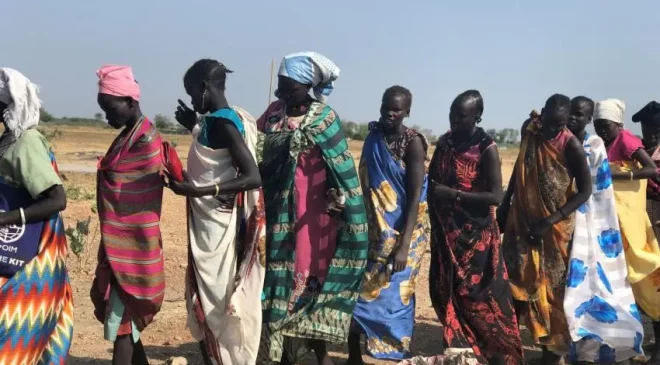
The Rapid Support Forces (RSF), an independent military force, and allied militias in Sudan raped several dozen women and girls in West Darfur’s capital, El Geneina, and those fleeing to Chad between late April and late June 2023, Human Rights Watch said today. The assailants appear to have targeted people because of their Massalit ethnicity and, in some cases, because they were known activists. Since the start of armed conflict in Sudan between the Sudan Armed Forces and the RSF on April 15, the RSF and predominantly Arab allied militias have carried out repeated attacks on towns and villages in the West Darfur state. These attacks have mainly targeted areas inhabited by one of the main non-Arab communities, the Massalit.
The Rapid Support Forces and allied militias should fully abide by international humanitarian law, including by adopting measures to end rape and other sexual violence by their forces. Those responsible for serious abuses, including senior commanders, should be appropriately punished. Governments and others with influence over the warring parties should act to promote adherence to international law.
UN Security Council member countries should publicly identify and condemn governments not respecting the existing arms embargo on Darfur, and impose targeted sanctions against commanders and officials responsible for serious abuses, including sexual violence. The council should also invite members of war-affected communities in Darfur, including survivors of sexual violence, to brief the council.
Security Council members and other countries should actively support the International Criminal Court’s investigations in Darfur, particularly in light of the prosecutor’s announcement that his office is investigating recent atrocities. Past obstruction of the court’s investigations by the Sudanese government and the UN Security Council’s passivity in the face of that obstruction has facilitated impunity and new crimes.
The UN Security Council should instruct the UN Secretariat to prepare a paper within 45 days with options for additional action to protect civilians in Sudan with a focus on Darfur that examines alternate configurations to the UN Integrated Transition Assistance Mission in Sudan (UNITAMS) mandate, including support for an African regional force.
The African Union and the Intergovernmental Authority on Development should support a coordinated response to the crisis by the UN Security Council and Human Rights Council.
The UN Human Rights Council should at the September session create an independent mechanism with a mandate to investigate, collect, and preserve evidence of grave violations and abuses being committed in Darfur and elsewhere in Sudan to identify those responsible and make recommendations for accountability.
Such a mechanism should have the resources and expertise to ensure robust investigations of conflict-related sexual violence in line with international standards by trained, experienced professionals using an approach that puts survivors’ needs first and obtains forensic and other evidence while mitigating risks of adding to the trauma they have experienced. This includes not subjecting survivors to unnecessary repetition of physical examinations or interviews about the incidents or to exams by those who may not be experienced in responding to sexual violence and collecting evidence. It also includes ensuring access to medical, psychosocial, legal, and socioeconomic services for survivors.
The European Union and other concerned governments including the United States should urgently impose targeted sanctions on leaders of the RSF, the Sudan Armed Forces, and armed groups responsible for serious abuses against civilians.
